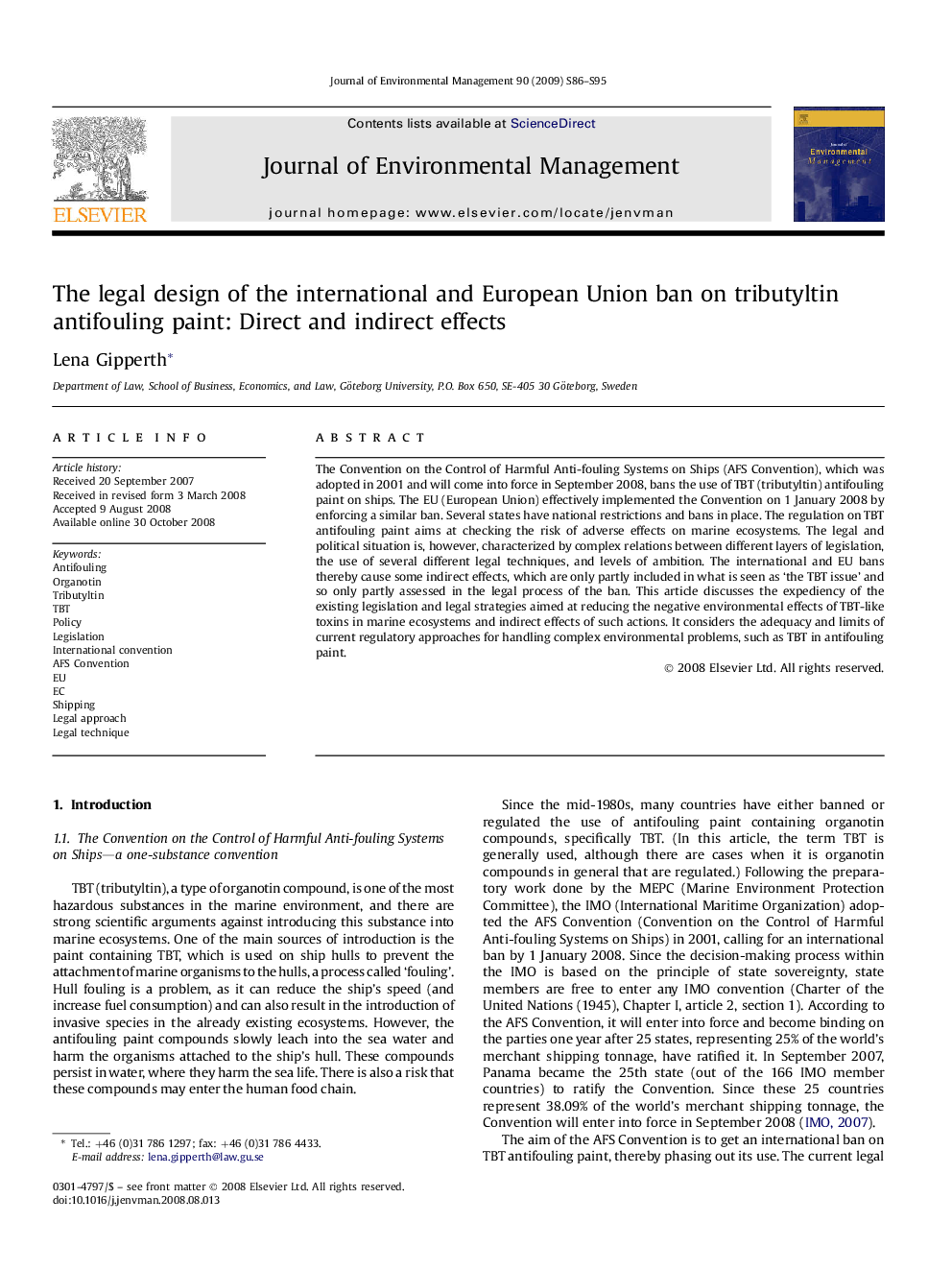| Article ID | Journal | Published Year | Pages | File Type |
|---|---|---|---|---|
| 1058544 | Journal of Environmental Management | 2009 | 10 Pages |
The Convention on the Control of Harmful Anti-fouling Systems on Ships (AFS Convention), which was adopted in 2001 and will come into force in September 2008, bans the use of TBT (tributyltin) antifouling paint on ships. The EU (European Union) effectively implemented the Convention on 1 January 2008 by enforcing a similar ban. Several states have national restrictions and bans in place. The regulation on TBT antifouling paint aims at checking the risk of adverse effects on marine ecosystems. The legal and political situation is, however, characterized by complex relations between different layers of legislation, the use of several different legal techniques, and levels of ambition. The international and EU bans thereby cause some indirect effects, which are only partly included in what is seen as ‘the TBT issue’ and so only partly assessed in the legal process of the ban. This article discusses the expediency of the existing legislation and legal strategies aimed at reducing the negative environmental effects of TBT-like toxins in marine ecosystems and indirect effects of such actions. It considers the adequacy and limits of current regulatory approaches for handling complex environmental problems, such as TBT in antifouling paint.
